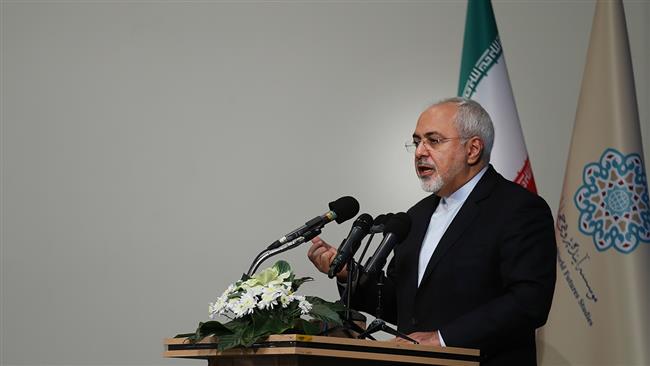
RNA - “Muslim states should respond to the Zionist regime (Israel)’s violations of the Palestinian people’s rights,” Foreign Minister Zarif said at the First International Conference on the Geopolitical Crises in the Islamic World in Tehran on Monday.
The Muslim world, he said however, has failed to unite behind the cause of delivering such a response due to “discourse difficulties,” which have hindered constructive interaction among Muslim countries.
Some “delusional” rulers in Islamic countries, Zarif said, have been attempting to portray Islam’s main problem as such false threats as discord between Shias and Sunnis and Arabs and Persians.
He cautioned all Muslim countries not to engage in “deviation and the giving of false directions,” and thereby prevent “this challenge [of extremism] from turning into a substantive challenge and a threat that is not just limited to the geographical contours of Syria, Yemen, Iraq, and the Muslim world but one that threatens the humanity.”
Major countries in the Middle East, such as Saudi Arabia, Turkey, and Qatar, have been bolstering militant groups fighting legitimate governments across the region in an attempt to push their political ambitions, including weakening their perceived adversaries.
Such support for the dangerous militant groups has nevertheless resulted in the proliferation of terrorist outfits and the strengthening of their destructive powers.
847/940